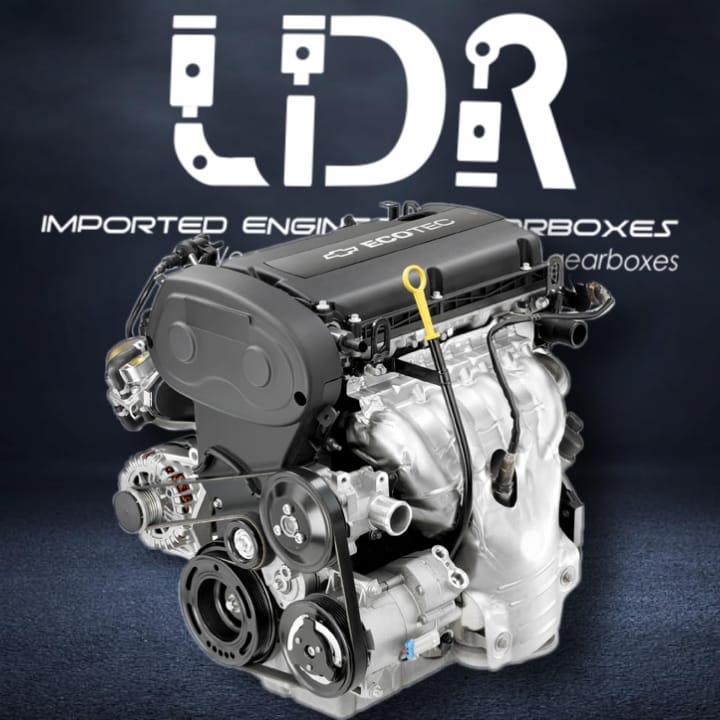Obtain the Perfect Opel Corsa 1.4 Engine Price Bargain at our Trusted Auto Parts Store
Obtain the Perfect Opel Corsa 1.4 Engine Price Bargain at our Trusted Auto Parts Store
Blog Article
Engine Purchasing Specialist Tips on Picking the Right Engine for Your Details Demands
Picking the appropriate engine for your specific needs involves a complex interaction of factors that surpass simple horse power numbers. From power result to sustain performance, the decision-making procedure can be intimidating. Recognizing the nuances of engine types, dimensions, and their compatibility with your lorry is crucial. However, there are expert pointers that can help navigate this surface with self-confidence. By diving right into the complexities of power versus efficiency, evaluating gas rankings, and budgeting for long-lasting costs, one can really optimize their engine option.
Power Vs. Efficiency: Discovering the Balance
When picking an engine, it is important to strike a balance in between power and performance to meet your particular demands effectively. Power describes the engine's capability to generate power for propulsion, identifying variables like acceleration, towing capability, and total performance - Opel Corsa 1.4 Engine Price. On the various other hand, efficiency connects to how well the engine uses gas to generate power, affecting elements such as gas economy and ecological kindness
Achieving the ideal balance between power and efficiency is crucial because an engine that is as well effective might consume extreme gas, bring about higher operating expense and unneeded strain on the environment. On the other hand, an engine that focuses on performance over power may cause sluggish performance, particularly popular scenarios like towing heavy tons or driving uphill.
To make an educated decision, consider elements such as your normal driving problems, the desired usage of the car, and your personal preferences. By assessing your needs and top priorities, you can pick an engine that strikes the perfect balance between power and efficiency, making sure ideal efficiency while lessening ecological influence and operating costs.
Understanding Engine Size and Type
To better fine-tune the selection procedure of an engine that strikes the ideal balance in between power and effectiveness, it is vital to delve right into the ins and outs of comprehending engine dimension and type. Engine dimension refers to the overall volume of air and gas that can be pushed via the engine cylinders.
Typical engine kinds include inline engines, V engines, and rotary engines, each with its unique advantages and downsides. Understanding the interaction in between engine size and kind is vital in choosing an engine that straightens with your specific requirements and top priorities, whether it be power, efficiency, or a balance of both.

Consider Your Vehicle's Needs
If you are looking for an engine for a heavy-duty truck that will be used for towing, you will require an effective engine with high torque capabilities. On the other hand, if you are choosing an engine for a portable car mainly utilized for city travelling, gas performance may be an extra essential factor to think about.
Furthermore, the surface on which the lorry will largely run ought to influence your engine option. If you often drive in uneven or hilly areas, a robust engine with good climbing power will be needed. Conversely, for level surfaces, an extra fuel-efficient engine might be sufficient. By lining up the engine specifications with your car's requirements, you can guarantee that your vehicle operates successfully and fulfills your performance expectations.
Evaluating Gas Effectiveness Ratings
Analyzing fuel performance scores is a critical element of selecting the appropriate engine for your automobile, guaranteeing price financial savings and ecological sustainability. Fuel effectiveness ratings, typically determined in miles per gallon (MPG) for gasoline engines or kilowatt-hours per 100 miles (kWh/100 miles) for electrical engines, indicate just how much a vehicle can take a trip on a specific quantity of fuel or electrical energy. Higher MPG or reduced kWh/100 miles values indicate much more reliable engines, translating to lowered fuel expenses and lower carbon discharges.
Additionally, compare various engine basics options within the check these guys out same car course to determine the most affordable option. Aspects such as engine dimension, weight, the rules of aerodynamics, and crossbreed or electrical capabilities can all influence fuel effectiveness.
Budgeting for Long-Term Prices
Strategically planning for lasting costs is essential when picking an engine, making certain monetary sustainability over the car's life-span. While the preliminary purchase rate of an engine is a substantial aspect, it is essential to consider the long-lasting costs linked with maintenance, repairs, and gas consumption.
In addition, researching the availability and cost of substitute components for the selected engine is important in budget plan preparation. By meticulously budgeting for these long-term expenses and factoring them into the decision-making procedure, individuals can choose an engine that not just satisfies their prompt demands but also remains cost-efficient throughout its life-span.
Final Thought
In final thought, choosing the ideal engine for your details demands calls for stabilizing power and efficiency, understanding engine size and kind, considering your vehicle's requirements, evaluating gas efficiency ratings, and budgeting for long-term costs. By carefully considering these factors, you can ensure that you choose an engine that fulfills your demands and provides optimal efficiency for your automobile.
To additionally refine the selection procedure of important site an engine that strikes the ideal balance between power and efficiency, it is crucial to dive into the intricacies of recognizing engine size and kind. Engine size refers to the total quantity of air and fuel that can be pushed with the engine cylinders. Usual engine types consist of inline engines, V engines, and rotary engines, each with its unique benefits and disadvantages. Understanding the interaction between engine dimension and type is essential in choosing an engine that straightens with your particular requirements and top priorities, whether it be power, effectiveness, or a balance of both.

Report this page